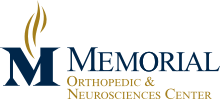Speech Therapy After Stroke
Speech Pathologist Diane Chamblin-Bevirt explains how speech therapy can help patients after a stroke.
What is the role of speech therapy for stroke victims?
Speech-language pathologists in a hospital setting assess, diagnose, and treat patients who have speech and language, cognitive, voice, and swallowing disorders. Brain damage that can be caused after a stroke often leads to a variety of disabilities, including those most commonly treated by speech therapy.
Describe some communication problems patients may experience following a stroke.
One type of communication problem is aphasia. It’s a language impairment that can affect the patient’s ability to understand spoken and written language.
For example, they may have difficulty with reading comprehension. They may have difficulty understanding what is said to them. They may not be able to follow directions. That’s called receptive aphasia.
Expressive aphasia affects the patient’s ability to speak and write language. They may have difficulty naming objects or expressing what they want to say. They may know what they want to say, but they have difficulty organizing their thoughts in order to speak the words that they want to say.
Discuss the treatment plan for aphasia.
Treatment for aphasia involves assessing the patient to determine their strengths and weaknesses. What we try to do in therapy is build upon the language that is still intact. Therapy may involve working on word association, word finding, word retrieval, word recognition, and then organizing those thoughts and ideas in order for the patient to be able to speak meaningful words, phrases, and sentences.
Describe some of the therapy methods for treating speech issues after a stroke.
What we do in therapy is we use a variety of things to help them achieve functional language. We might use computer programs. We might use mobile therapy apps, and we also teach them to use compensatory strategies to maximize their communication abilities.
What do you recommend for patients with severely impacted speech issues?
Patients who have severely impacted speech may benefit from an augmentative communication device. It’s a specialty device that has phrases loaded onto it. It’s programmed specifically for the patient. You can use the patient’s own real voice to program those phrases, and it just helps them to be able to communicate their wants and needs, their feelings, and what their thoughts are.


